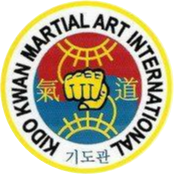Kim Un Yong, an International Olympic Committee vice president who has long been one of the most influential and provocative figures in international sports, had his Olympic privileges and duties suspended Friday amid an investigation by prosecutors in South Korea into bribery and embezzlement allegations against him.
The IOC’s ruling executive board voted in a telephone conference call to “provisionally deprive” Kim, 72, of “all the rights, prerogatives and functions deriving from his IOC membership” pending investigations by South Korean authorities and by the IOC ethics commission.
The move undermines Kim’s influence within the IOC. It also raises the possibility he could be expelled. He was given a “most serious” warning five years ago in connection with the Salt Lake City corruption scandal.
The action raises fresh questions about the long-range future in the Games of taekwondo, a martial art that emphasizes kicking. The IOC is due to review the Summer Games lineup after the 2004 Olympics in Athens. The Games shift in 2008 to Beijing, where Chinese officials have been lobbying intensely for wushu, known here as kung fu, to become part of the Olympics.
Moreover, the suspension of Kim signals emphatically that the IOC of Jacques Rogge of Belgium, elected president in 2001, is not the IOC of Juan Antonio Samaranch of Spain, president before that for 21 years. Kim has not been arrested; no charges have been filed. Yet two weeks ago, prompted by press reports out of Seoul, Rogge referred the matter to the ethics commission.
South Korean prosecutors have been investigating Kim over allegations he took bribes and kickbacks from former South Korean Olympic officials and embezzled funds from taekwondo organizations.
Allegations of financial and other irregularities have in recent weeks dogged the Seoul-based World Taekwondo Federation, the Colorado Springs, Colo.-based U.S. Taekwondo Union and a number of taekwondo federations in other nations. The U.S. Olympic Committee on Tuesday is planning a hearing in Chicago into the U.S. federation.
Also under question in Seoul is whether payments were made to North Korean sports officials to help promote sports exchanges between South and North.
The IOC ethics investigation is believed to include a focus on the alleged contribution of millions of dollars to Kim’s unsuccessful 2001 campaign for the IOC presidency.
On Jan. 9, Kim resigned as a member of South Korea’s national assembly and as head of the WTF. He acknowledged that he “sometimes got careless” and “did things wrong.” Kim, however, has long proved to be among the most resilient of public figures. He has been hospitalized for treatment of high blood pressure since Jan. 13 and could not be reached Friday, but in a recent telephone interview attributed the investigation in Seoul to the ferocity of domestic politics. He said he had committed no criminal wrongdoing.
“When you go to court, everything turns out OK,” he said. “Until then, it’s a media frenzy.”
He added, “My mistake is 30 years of voluntary service to the Olympics and to sport, to put my country on the world map. That is my mistake.”
His son, John Kim, said Friday by telephone, “We’re no criminals.”
The elder Kim has long moved in the highest circles of politics, government, international relations and sport.
For years, he served as president of the WTF, the South Korean Olympic Committee and the Monaco-based General Assn. of International Sports Federations. He has been an IOC member since 1986 and played a leading role in Seoul’s staging of the 1988 Summer Games.
In 1999, Kim received what the IOC called the “most serious” warning in connection with the Salt Lake scandal. An IOC inquiry concluded that the Salt Lake bid team had helped subsidize John Kim’s job with a local company and that the elder Kim had used his influence to help arrange piano performances for his daughter with the Utah Symphony.
The IOC inquiry said it was highly unlikely Kim would not have known of the arrangement involving his son; the elder Kim has said he did not know. John Kim was indicted in 1999 on U.S. criminal charges; he was arrested last May in Sofia, Bulgaria, and spent several months in custody there before the U.S. case was dismissed late last year.
In March, 1999, at the height of the scandal, Kim Un Yong confronted the IOC’s then-director general, Francois Carrard, striking a martial-arts pose; he also shouted at Canadian IOC member Dick Pound, who led the IOC inquiry into events in Salt Lake. Samaranch, according to eyewitnesses, ordered Kim to calm down. Afterward, Kim delivered letters of apology.
In 2001, Kim ran for the IOC presidency, finishing a distant second to Rogge, 59-23.
In 2002, at the Salt Lake City Winter Games, Kim played a key role in averting a boycott amid fiery complaints by South Korean athletes and coaches of unfair judging at the speedskating events.
Last year, he was elected to a four-year term as IOC vice president. Back home, however, there were complaints that he had been too consumed with his own advancement within the IOC at the expense of the South Korean candidate for the 2010 Winter Games, Pyeongchang. It narrowly lost to Vancouver, 56-53.
Such complaints belied the fact that, as one IOC insider noted in a reference to the 2001 election, Kim could at most rally 23 votes. In Seoul, protesters threw eggs at posters of Kim and shouted for him to resign from his posts. Later, they burned the posters.
![]()

Average Rating